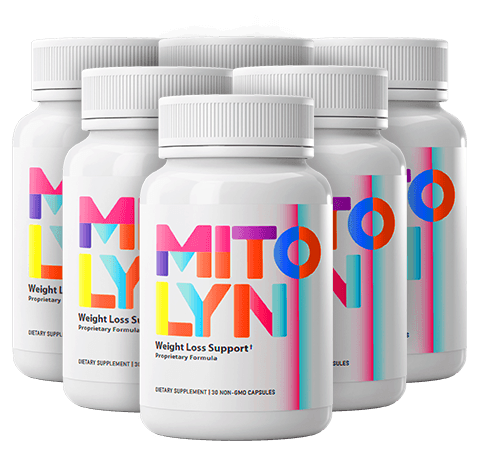
Are you looking to live longer and lose weight? Intermittent fasting can help. It may lower obesity, type 2 diabetes, and heart disease risks. This makes it a good choice for better health and wellbeing.
By eating healthy and starting with a Mediterranean Diet, you’re on the right path. This can lead to a healthier lifestyle.
Introduction to Intermittent Fasting
Our modern lives need diets that fit well. Intermittent fasting boosts memory and reduces inflammation. It’s great for your brain and health.
Start with a Mediterranean Diet and healthy eating. You’ll see the benefits of intermittent fasting for yourself.
Key Benefits of Intermittent Fasting
So, why is intermittent fasting so good? It lowers fasting glucose and insulin, and boosts adiponectin in type 2 diabetes patients. A Mediterranean Diet can help you manage your health.
Key Takeaways
- Intermittent fasting can help reduce obesity, type 2 diabetes, and heart disease
- A Mediterranean Diet for Beginners can provide a great foundation for Healthy eating habits
- Incorporating a Nutrition plan into your daily routine can help you achieve your health goals
- Intermittent fasting has been shown to improve cognitive function and reduce inflammation
- It’s essential to find a diet that works for you and your lifestyle
- Research indicates that intermittent fasting can help reduce fasting glucose and insulin levels
Understanding the Mediterranean Diet
The Mediterranean diet comes from the traditional eating habits of countries around the Mediterranean Sea. It’s linked to many health benefits. These include lower cholesterol, heart disease, stroke, and some cancers. It’s more than a weight loss diet; it’s a way of life that boosts overall health.
Mediterranean recipes are key to this diet. They focus on whole foods like fruits, veggies, whole grains, and healthy fats. Eating 7 to 10 servings of fruits and veggies daily is recommended. This diet is full of antioxidants, fiber, and nutrients.
Some important parts of the Mediterranean diet are:
- High intake of plant-based foods, including fruits, vegetables, beans, lentils, and nuts
- Whole grains, such as brown rice, quinoa, and whole-wheat bread
- Healthy fats, like those found in olive oil, nuts, and fatty fish
Adding these foods to your diet can greatly improve your health. It’s a great choice for a weight loss diet that’s both effective and sustainable.
Key Components of the Mediterranean Diet
Starting a Mediterranean lifestyle means knowing its main parts. This diet focuses on plant foods like fruits, veggies, whole grains, and legumes. It’s tasty and good for your health. Adding Easy Mediterranean dishes to your meals can show you its benefits.
A Mediterranean diet includes colorful fruits and veggies, whole grains, and legumes. It also has seafood, but less dairy and red meat. This eating style helps you stay healthy and feel good.

- Whole grains, such as brown rice, quinoa, and whole-wheat bread
- Legumes, like beans, lentils, and peas
- Fruits and vegetables, with an emphasis on colorful and seasonal produce
- Healthy plant-based oils, such as olive oil
Using these ingredients in your meals makes tasty and healthy dishes. This supports a Healthy eating lifestyle.
Mediterranean Diet Meal Plan
Starting the Mediterranean Diet? You need a good meal plan. It begins with 1,200 calories a day. You can add more calories to 1,500 or 2,000 for more food. This Nutrition plan helps you lose 1 to 2 pounds a week.
Breakfasts might be oatmeal with fruit and nuts. Lunches could be whole-grain pita with hummus and veggies. Dinners might be grilled fish with roasted veggies. It’s simple to start with a Mediterranean Diet for Beginners.

- Breakfast: oatmeal with fruit and nuts (300 calories)
- Lunch: whole-grain pita with hummus and vegetables (400 calories)
- Dinner: grilled fish with roasted vegetables (500 calories)
These meals offer a good balance of nutrients. They have protein, carbs, fiber, and healthy fats. It’s a great Nutrition plan for losing weight.
Benefits of the Mediterranean Diet
The Mediterranean diet is great for healthy eating. It focuses on Mediterranean cuisine and Mediterranean recipes. This diet is full of fruits, veggies, whole grains, and lean proteins. It makes you healthier and happier.
This diet lowers heart disease and stroke risks. It also cuts cancer and death risks by 20%. Plus, it’s full of fiber, which helps control blood sugar and fight type 2 diabetes.

Some big benefits of the Mediterranean diet are:
* It lowers muscle weakness and frailty in older adults by 70%.
* It helps prevent Alzheimer’s and dementia by improving cholesterol and blood vessel health.
* It halves the risk of Parkinson’s disease with its antioxidants.
* It lowers death risks by 20% by fighting heart disease and cancer.
Heart Health
The Mediterranean diet is full of heart-healthy nutrients. It has monounsaturated fats, omega-3s, and antioxidants. These help lower heart disease risks and improve health.
Weight Loss
This diet is also good for losing weight. It focuses on whole foods and limits sugars and fats. This helps you reach a healthy weight and feel better.
Improved Cognitive Function
Lastly, the Mediterranean diet boosts brain health. It reduces age-related cognitive decline. Eating Mediterranean foods supports your brain and improves your life quality.
Tips for Following the Mediterranean Diet
To adopt a Mediterranean lifestyle, start by making small changes. Add more fruits and vegetables to your meals and snacks. Try to include a variety of Easy Mediterranean dishes in your Nutrition plan. This can be as simple as adding a side salad to your lunch or having a piece of fruit with your breakfast.
In addition to dietary changes, incorporating physical activity is crucial. This can be as simple as taking a short walk during your lunch break or doing a few jumping jacks during commercial breaks while watching TV. Making physical activity a part of your Mediterranean lifestyle can have numerous health benefits, including weight loss and improved heart health.
Here are some tips to help you get started:
- Start with small changes, such as replacing one unhealthy snack with a healthy one
- Incorporate physical activity into your daily routine, such as taking a short walk or doing a few jumping jacks
- Make it a lifestyle by enjoying meals with others and finding healthy ways to manage stress

By following these tips and incorporating the Mediterranean diet into your Nutrition plan, you can improve your overall health and wellbeing. Remember to always consult with a healthcare professional before making any significant changes to your diet or exercise routine.
Common Mistakes to Avoid
When starting the Mediterranean Diet, knowing common mistakes is key. A healthy eating plan like this needs focus and lasting changes. Remember, it’s not just about cutting calories. It’s about feeding your body with good, whole foods.
To make the most of the Mediterranean diet, avoid common errors. Some mistakes include:
- Not eating enough fruits and veggies
- Not drinking enough water all day
- Not sleeping enough, which can make you eat more
By watching out for these mistakes, you can do well on the Mediterranean diet. Focus on whole foods, drink plenty of water, and get enough sleep. With practice and patience, you’ll adopt a healthy eating lifestyle. This will help you lose weight and feel better overall.

Mediterranean Diet and Weight Loss
The Mediterranean diet is a smart choice for losing weight. It focuses on whole foods like fruits, veggies, grains, and legumes. These foods are key to a healthy Nutrition plan. Following this diet can lead to losing 5-10% of your weight in 6 months, based on studies.
Adding Mediterranean recipes to your meals can make your diet more exciting. Try dishes like grilled chicken or fish with roasted veggies. Or, make lentil soup with whole grain bread. These meals are tasty and full of nutrients, helping with weight loss.
The Mediterranean diet is all about eating whole, unprocessed foods. This approach helps you create a balanced Nutrition plan for weight loss and health. Here are some tips for losing weight on this diet:
- Eat lots of fruits and veggies.
- Make physical activity a daily part of your life.
- Drink plenty of water.
- Get enough sleep.
By following these tips and adopting the Mediterranean diet, you can reach and keep a healthy weight. Always talk to a healthcare expert before starting any new diet or exercise plan.
Mediterranean Diet and Heart Health
Living a Mediterranean lifestyle can greatly improve your heart health. It focuses on eating whole foods like fruits, veggies, grains, and legumes. This diet helps lower heart disease risk by promoting healthy eating and regular exercise.
The Mediterranean diet is full of easy Mediterranean dishes that are good for you. These dishes are packed with nutrients and have fewer processed foods. Adding them to your meals can lower heart disease risk and boost heart health. Try dishes like grilled fish with veggies, whole grain pita with hummus, and fruit and nut salads.
Here are some tips for better heart health on the Mediterranean diet:
- Eat at least 3 servings of fatty fish each week
- Have 3-4 servings of fruits and veggies daily
- Add whole grains to your meals, like brown rice, quinoa, and whole wheat bread
- Limit red meat and processed foods

Follow these tips and live a Mediterranean lifestyle to lower heart disease risk. Always choose healthy eating and stay active every day.
Mediterranean Diet and Cognitive Function
Exploring the Mediterranean Diet for Beginners shows its benefits for brain health. A good Nutrition plan can boost your health, including your brain. The Mediterranean Diet, along with a Weight loss diet, can lower cognitive decline risks.
Studies found that the MIND diet, mixing Mediterranean and DASH diets, fights dementia and cognitive decline. Adding physical activity and lasting lifestyle changes supports brain health and overall well-being.
Some key MIND diet parts include:
- Eating six or more green, leafy vegetables weekly
- Having at least one non-starchy vegetable daily
- Adding berries to your diet twice a week
- Using olive oil for cooking

Following the Mediterranean Diet and staying active can lower cognitive decline risks. Always talk to a healthcare expert before changing your diet or exercise routine.
Mediterranean Diet and Mental Health
The Mediterranean diet is known for being very healthy. It includes foods like fruits, vegetables, whole grains, and legumes. These foods help your mental health a lot.
Adding Mediterranean recipes to your meals is a good start. Try using more olive oil, nuts, and seeds. They are full of healthy fats and antioxidants. These can help lower inflammation and boost your mood.

- Less risk of depression and anxiety
- Better brain function
- Better mood and overall health
By eating Mediterranean and staying active, you can see these benefits. Eat lots of whole, nutritious foods. Try to avoid processed and sugary foods. The Mediterranean diet lets you enjoy tasty, healthy meals while keeping your mind sharp.
Mediterranean Diet and Overall Health
Living a Mediterranean lifestyle can greatly improve your health. By choosing Easy Mediterranean dishes and a good Nutrition plan, you can lower disease risks. This diet focuses on whole foods like fruits, veggies, grains, and legumes.
The Mediterranean diet also values physical activity and lasting lifestyle changes. Adding regular exercise and healthy eating can boost your health. It can also lower disease risks. Some benefits include:
- Reduced risk of cardiovascular diseases
- Improved weight management
- Lower risk of type 2 diabetes
- Improved cognitive function
To get the most from the Mediterranean diet, make a Nutrition plan that fits you. Start by adding Easy Mediterranean dishes to your meals. Then, slowly make lasting lifestyle changes. Adopting a Mediterranean lifestyle can enhance your health and wellbeing, and lower disease risks.

FAQ
Q: What is the Mediterranean Diet?
A: The Mediterranean Diet is a healthy eating plan that focuses on whole foods. It includes lots of fruits, vegetables, whole grains, and healthy fats. It’s known for helping with weight loss and improving heart health.
Q: What are the key components of the Mediterranean Diet?
A: The Mediterranean Diet is all about eating whole foods. It’s rich in fruits, vegetables, whole grains, and healthy fats. Foods like olive oil, nuts, and fish are big parts of this diet.
Q: How does the Mediterranean Diet promote weight loss?
A: The Mediterranean Diet helps with weight loss by focusing on whole foods. It’s full of fiber and healthy fats, which keep you full and satisfied. This helps you eat less and lose weight.
Q: What are some delicious Mediterranean Diet recipes for beginners?
A: There are many tasty Mediterranean Diet recipes for beginners. You can try making Greek salads, grilled chicken with lemon and herbs, or roasted vegetables with olive oil and garlic. These dishes are easy to make and delicious.
Q: How can I incorporate Mediterranean Diet principles into my daily meals?
A: To follow the Mediterranean Diet, start by adding more fruits, vegetables, whole grains, and healthy fats to your meals. Try using olive oil instead of butter, and add nuts or seeds to your salads. You can also try new recipes and experiment with different flavors.
Q: What are some tips for maintaining a Mediterranean Diet?
A: To keep up with the Mediterranean Diet, plan your meals in advance and shop for whole foods. Try to eat at home more often and avoid processed foods. Also, stay hydrated by drinking plenty of water and limit sugary drinks.
Q: What are the benefits of following the Mediterranean Diet?
A: The Mediterranean Diet has many benefits. It can help with weight loss, improve heart health, and even lower the risk of certain diseases. It’s a healthy and balanced way of eating that promotes overall well-being.
















